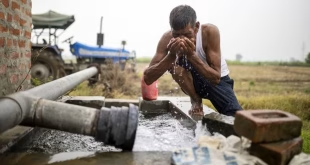- February has recorded an unusual surge in temperature. GoI, like everyone else, will be anticipating a torrid summer.
- Initial forecasts are that peak power demand in April will be 229GW, higher than the June 2022 record of 211GW, and therefore, by the time it’s June this year, demand will be even more.
- The Electricity Act empowers GoI to ask thermal power plants that rely on imported coal to run at full capacity.
- Reportedly, this is being done – if so, it’s good proactive planning by GoI.
- However, the 15 power plants designed to run on imported coal represent a weak link in the power generation ecosystem.
- They are mostly locked into inflexible power purchase agreements when it comes to electricity tariff adjustment.
- So, their instinct is to rationalise costs.
- When international coal prices rise these plants’ capacity usage is low.
- On February 15, they had, on average, a plant load factor of 21% and their coal stock was just 42% of the normative requirement.
- This strains the system as coal-based plants usually account for 70% of power generation, which climbs to beyond 80% when demand peaks.
- As coal prices began to rise over the last two years, the share of imports fell as a percentage of total domestic consumption.
- It was 26% in 2019-20 and by 2021-22, it declined to 20. 3%.
- Higher domestic coal output cannot offset this problem right away.
- In the short term, GoI now needs to ensure that coal and railway ministries are ready to face the summer surge.
- The long-term solution may have to centre on pending plans to supply these 15 power plants with domestic coal that is treated to lower its ash content.
- The heat of the coming summer should add to the urgency.
Electricity act 2003
- An act to consolidate the laws relating to generation, transmission, distribution, trading and use of electricity for taking measures conducive to development of electricity industry, promoting competition therein, protecting interest of consumers.
- To supply of electricity to all areas, rationalisation of electricity tariff, ensuring transparent policies regarding subsidies, promotion of efficient.
- To environmentally benign policies, constitution of Central Electricity Authority Regulatory Commissions and establishments of Appellate Tribunal for matters therewith or incident thereto.
SOURCE: THE HINDU, THE ECONOMIC TIMES, PIB
 Chinmaya IAS Academy – Current Affairs Chinmaya IAS Academy – Current Affairs
Chinmaya IAS Academy – Current Affairs Chinmaya IAS Academy – Current Affairs



